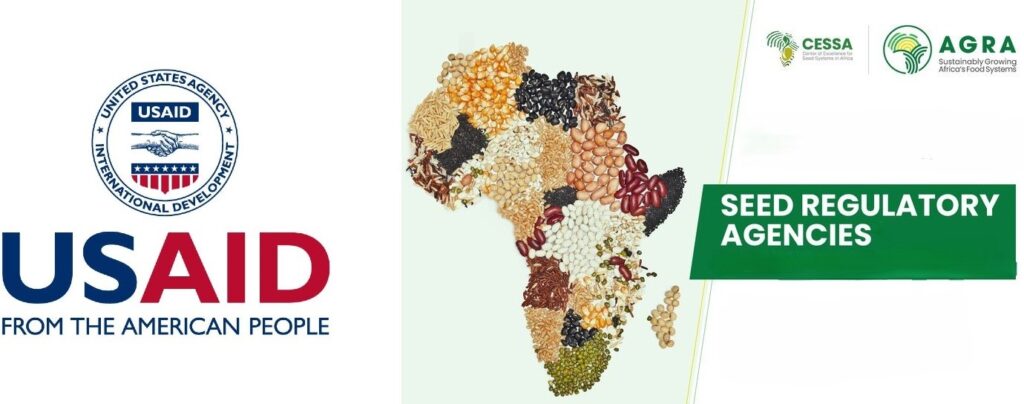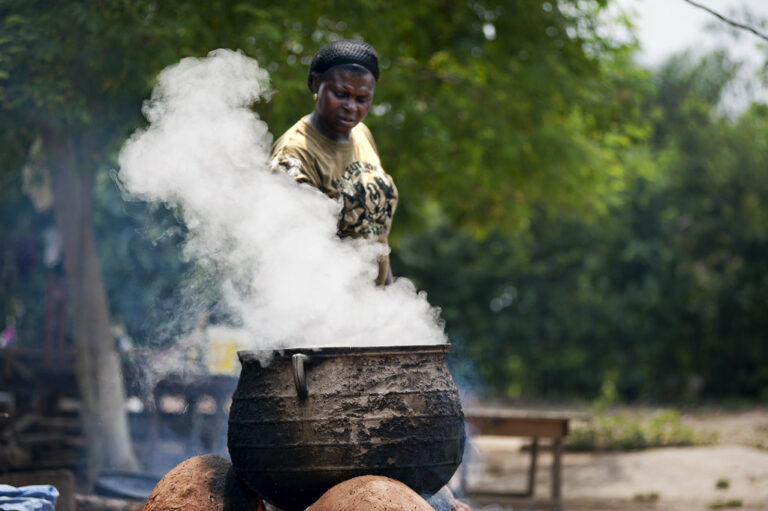
USAID announced a substantial contribution of up to USD $9.95M towards strengthening the Centre of Excellence for Seed Systems in Africa (CESSA) to support the development of functional seed systems on the continent in conjunction with the African Union’s (AU) Extraordinary Summit on the Comprehensive Africa Agriculture Development Programme (CAADP), which was hosted by the Ugandan government in Kampala. A “one-stop center,” the shop of Excellence for Seed Systems in Africa (CESSA) aims to expedite the development of functional seed systems necessary for a continent that is food secure by establishing strategic collaborations to solve diverse difficulties in African seed systems. An essential part of the continent’s agricultural agenda within CAADP, the funding is a significant step toward the African Union’s Seed Sector Action Plan (2020–2030).
The resources will allow CESSA to collaborate with partners in addressing identified weaknesses in seed systems in various African countries, which will be crucial in ensuring food and nutrition security, especially in Africa’s drought-prone regions. This builds on evidence-based assessments and prior collaboration between USAID and AGRA. This covers farmer awareness, sector planning and coordination, early generational seed production, development, commercialization, and quality assurance of enhanced seed varieties. “Strengthening Africa’s seed systems is a fundamental component of the continental agenda in the recently endorsed Kampala Declaration and a priority for food security, resilience, and inclusive economic growth in African countries,” said AGRA President Dr. Agnes Kalibata in her remarks about the partnership. In order to promote this nation-led agenda and advance the sector jointly, AGRA is happy to expand cooperation with USAID and other partners through CESSA, leveraging our combined strengths, experience, and portfolios.
Initial Efforts
As a first collaboration under the award with CESSA, AGRA is pleased to announce a three-year investment of up to USD $3M in Seeds2B Africa, a private social enterprise based in Kenya that will work to increase smallholder farmers’ resilience, incomes, food security, nutrition and ultimately improve their livelihoods in Kenya, Malawi, and Tanzania.
“ This investment underscores the vital role of resilient seed systems in improving agriculture across sub-Saharan Africa,” said Mr. Tony Gathungu, Global Head of Seeds2B and CEO of Seeds2B Africa Social Enterprise. “Seeds2B Africa will drive the commercialization of stress-tolerant, nutrient-dense, and market-preferred seeds while building the capacity of seed companies to generate demand and expand access. By equipping farmers with high-quality seeds and innovative tools, this initiative will enhance resilience, boost productivity, and improve livelihoods across the region.”
The Path Ahead
Since its founding in 2006, AGRA has been involved in the advancement of seed systems throughout Africa. The organization has provided funding for the creation and introduction of 659 improved cultivars for 18 crops throughout this time. This is on top of helping 119 domestic seed producers across 18 African nations, who have so far generated 847,655 metric tonnes of high-quality seed that have benefited 25.1 million farmers. With the formation of CESSA two years ago, AGRA has further enhanced efforts to work with partners in support of this continental priority, seeking to build an eco-system that accelerates access to improved varieties for all farmers.
In order to identify gaps and provide recommendations for solutions, AGRA has conducted national seed system assessments in 11 countries (Nigeria, Ghana, Mali, Burkina Faso, Ethiopia, Kenya, Uganda, Rwanda, Tanzania, Malawi, and Mozambique) over the past year using a diagnostic tool called the Seed System Assessment Tool (SeedSAT). Governments can now use the National Seed Investment Plans that have been created by compiling and costing them to direct investments. The AU Seed Sector Action Plan will guide AGRA and its partners’ efforts to implement these National Seed Investment Plans.








